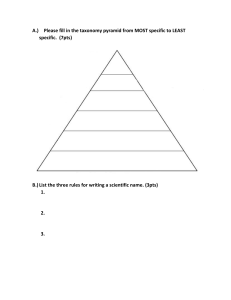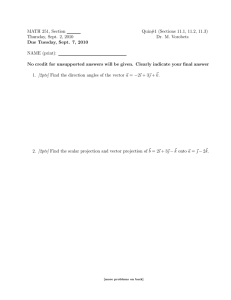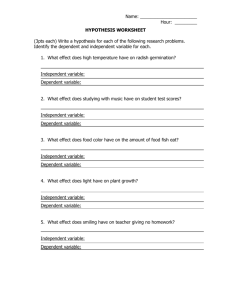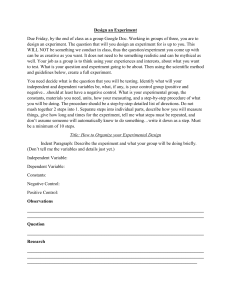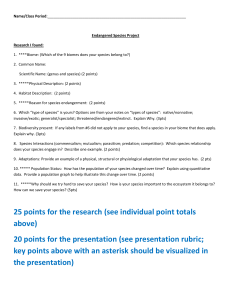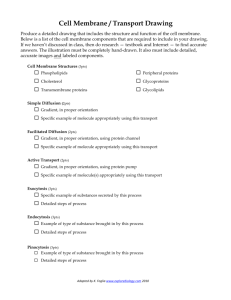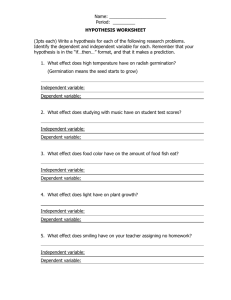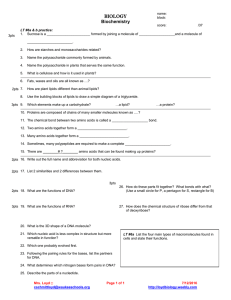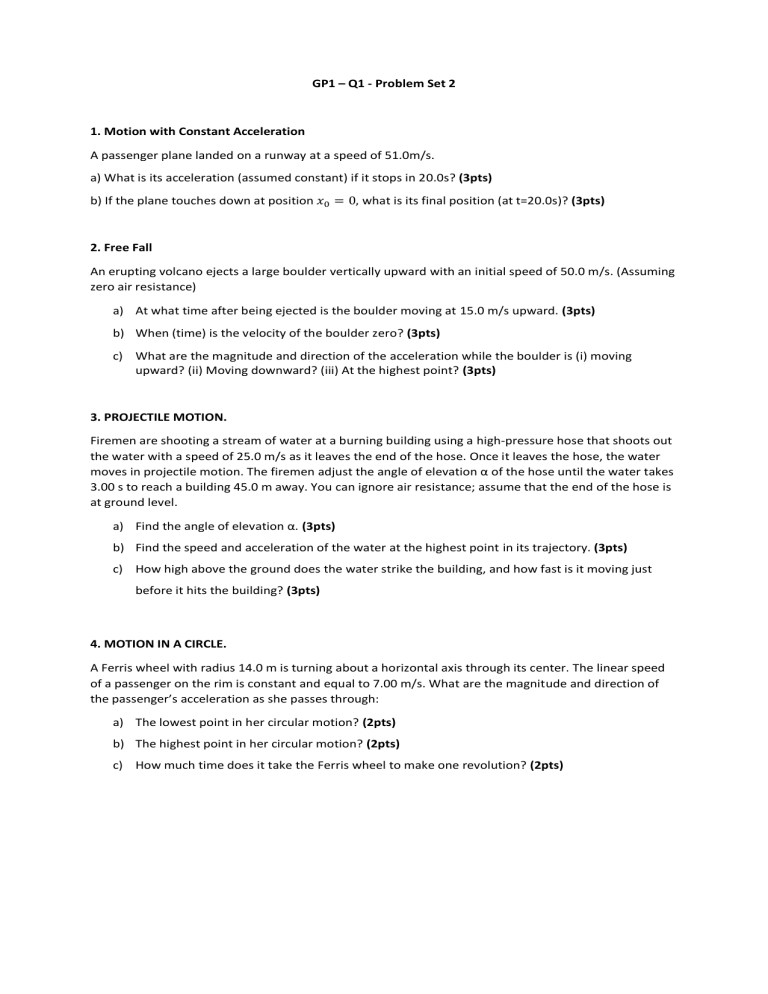
GP1 – Q1 - Problem Set 2 1. Motion with Constant Acceleration A passenger plane landed on a runway at a speed of 51.0m/s. a) What is its acceleration (assumed constant) if it stops in 20.0s? (3pts) b) If the plane touches down at position 𝑥0 = 0, what is its final position (at t=20.0s)? (3pts) 2. Free Fall An erupting volcano ejects a large boulder vertically upward with an initial speed of 50.0 m/s. (Assuming zero air resistance) a) At what time after being ejected is the boulder moving at 15.0 m/s upward. (3pts) b) When (time) is the velocity of the boulder zero? (3pts) c) What are the magnitude and direction of the acceleration while the boulder is (i) moving upward? (ii) Moving downward? (iii) At the highest point? (3pts) 3. PROJECTILE MOTION. Firemen are shooting a stream of water at a burning building using a high-pressure hose that shoots out the water with a speed of 25.0 m/s as it leaves the end of the hose. Once it leaves the hose, the water moves in projectile motion. The firemen adjust the angle of elevation α of the hose until the water takes 3.00 s to reach a building 45.0 m away. You can ignore air resistance; assume that the end of the hose is at ground level. a) Find the angle of elevation α. (3pts) b) Find the speed and acceleration of the water at the highest point in its trajectory. (3pts) c) How high above the ground does the water strike the building, and how fast is it moving just before it hits the building? (3pts) 4. MOTION IN A CIRCLE. A Ferris wheel with radius 14.0 m is turning about a horizontal axis through its center. The linear speed of a passenger on the rim is constant and equal to 7.00 m/s. What are the magnitude and direction of the passenger’s acceleration as she passes through: a) The lowest point in her circular motion? (2pts) b) The highest point in her circular motion? (2pts) c) How much time does it take the Ferris wheel to make one revolution? (2pts)
